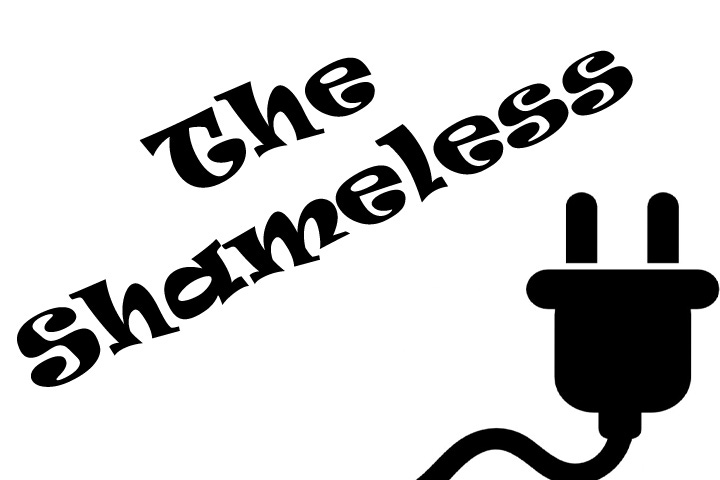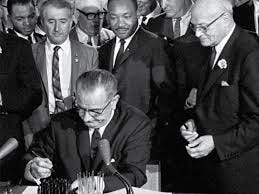Our Voting Rights are Still under Attack
Voter Restriction Efforts have been around since the country’s founding
Issue #126 Government September 1, 2022
No ads or annoying popups ever! So instead, please see the important information at the bottom of this post. Please keep those “Likes” and comments coming! Thanks!
The 2022 midterm elections will be completed by November 8, 2022. All of the primary elections are now over, and the full election season begins right around Labor Day. That is approximately a two-month period for candidates to tell their stories to get people to vote for them.
Supposedly, one person = one vote, and whoever has the most votes wins. If only it was that simple.
At the very beginning of the United States, the right to vote was extended only to white male landowners. Over the next several decades, even as voting restrictions were lifted for white men, many Southern states set up new barriers to voting for Black and other non-white men as a reaction to the 15th Amendment, ratified in 1870, guaranteeing that the right to vote cannot be denied because of race.
Since the disputed 2020 presidential election, many Republican-led states are again trying to suppress the voting rights of those who they feel may not vote for them, no matter the race.
Prior to 2020, many states had mail-in/absentee voting in place, often for decades, without question. This was primarily because most of the people who voted absentee were older white Republicans. However, because of the pandemic, many people of all ages and races, including Black and other people of color, also voted by mail and/or voted absentee or early.
In 2020, the Democrats won the House, the Senate, and the presidency and sent the Republicans into a frenzy of voter suppression tactics.
Last week in Florida, Republican Governor Ron DeSantis made a big production of arresting twenty former felons who thought they had the right to vote after they finished their sentences (except for murderers, etc.). Not only was that a new law voted on by the people of Florida, but the state actually sent these people voter registration cards and ballots.
But not only did DeSantis not arrest four people from the Republican stronghold called “The Villages” who actually illegally voted twice for Donald Trump, but he arrested the mostly Black people who were told by the State of Florida that they could vote. DeSantis spent hundreds of thousands of dollars arresting the people who already served their sentences and threw them back in jail.
How did we get here and what can we do now?
The 1870s and beyond: The former Confederate states began devising all kinds of ways to make it harder for Black men to vote, including poll taxes, literacy tests, counting beans in a jar, “grandfather clauses (if your grandfather could vote, so can you), and of course, violence. The Department of Justice was formed to catch and prosecute members of the Ku Klux Klan.
1920: Women finally won the right to vote nationwide with the ratification of the 19th amendment.
The 1960s: After the 1954 Brown vs Board of Education that struck down the 1896 Plessy vs Ferguson premise of racial segregation and “separate but equal,” the Southern states increased their efforts to suppress the Black and minority vote. The 1955 murder of 14-year-old Emmitt Till revived and empowered the Civil Rights movement, which led to more dangerous and murderous attacks on the freedoms of Black Americans.
The 24th Amendment, ratified in 1964, struck down the poll tax requirement for voting, and in 1966, the Supreme Court ruled that poll taxes were unconstitutional in any election in the United States.
The seminal Voting Rights Act was ratified in 1965 with bipartisan support in both houses of Congress. The law specified that state and local jurisdictions with a historical pattern of suppressing voting rights based on race had to submit changes to the United States Justice Department for approval.
1971: The 26th Amendment lowered the age to vote from 21 to 18 years of age.
1975: Congress added new provisions to the Voting Rights Act to protect members of language minority groups. The amendments required jurisdictions with significant numbers of voters with limited or no proficiency in English to provide voting materials in other languages and multilingual assistance at the polls.
1982: Congress passed a law extending the Voting Rights Act for another 25 years (through 2007) and also required states to take steps to make voting more accessible to the elderly and people with disabilities.
1993: Congress passed the National Voter Registration Act (also known as the “Motor Voter Act”), which allowed people to register to vote at the same time they renewed their driver’s licenses.
2002: Congress passed the “Help America Vote Act”, hoping to streamline election procedures across the country. The law placed new mandates on states and localities to replace outdated voting equipment, create statewide voter registration lists, and provide provisional ballots to ensure that eligible voters are not turned away if their names are not on the roll of registered voters. The law also was designed to make it easier for people with disabilities to cast private, independent ballots.
2013: In June, the Supreme Court ruled in the Shelby County vs. Holder case that one of the most important sections of the 1965 Voting Rights Act was unconstitutional. After this decision, states were no longer required to submit changes to their voting processes to the United State Department of Justice.
Beginning in August of 2013, several Southern states, including North Carolina, Texas, Alabama, Mississippi, Florida, and Virginia started re-instituting race-based discrimination and voter suppression laws against non-white Americans.
2016 and 2020: After Donald Trump lost the popular vote in 2016, and then again lost the popular vote as well as the electoral college vote in 2020, the right wing started claiming that the voting process was rife with fraud and widespread incidences of people illegally voting. None of that was true, of course, but at least 23 states started passing very restrictive voter suppression laws to keep Democrats from voting. Additionally, many Republican-led states tried to not count the votes by Democrats and unsuccessfully attempted to submit “alternate” slates of Electoral College electors that would cast their votes for Trump even though Biden won those states.
2020 Census: For two years, the Trump administration tried to insert a question in the Census asking if a person was a citizen of the United States. Additionally, Trump cut the funding for the census counting process, resulting in an undercounting of low-income and people of color populations. The official count supposedly showed that there were more people aligned with the Republican Party, and voting districts and federal funding for several areas were affected by the 2020 undercount.
January 6, 2021: During a presidential election debate with Secretary of State Hillary Clinton in the fall of 2020, Donald Trump told the “Proud Boys” and the “Oath Keepers”, both violent far-right groups, to “stand back and stand by”. Trump had been claiming since the spring of 2020 that if he lost the election then the election was stolen. After the Electoral College met on December 14, 2020, with the majority of votes correctly going to Joseph Biden, Trump called his supporters to Washington, D.C. on January 6, 2021, to protest the “stolen election” and to keep Congress from counting and certifying the election. We all know what happened next.
Republicans in seven states Biden won also tried to submit “alternate” slates of electors to Congress before the January 6 official counting began.
At the time of this writing, Trump is in legal trouble in New York, Washington, D.C., Georgia, and Florida. Indictments against him and/or the Trump Organization could be imminent for breaking several laws.
Recent polls show that the majority of Americans feel that Trump should be held accountable and that the threat against our very democracy is the #1 fear and topic that concerns them.
2022 Midterms: In about two months, the 2022 midterm elections will be completed. There are several Trump-endorsed candidates for governor, senator, and Secretary of State (a few of whom also stormed the Capitol on Jan 6) who not only perpetuate the “Big Lie” about the 2020 election being stolen but have also pledged to overturn or otherwise de-certify any 2024 election where Democrats actually win. They plan to ignore the will of the people and only certify Republican candidates, even if those candidates lose.
Have you ever been affected by voter suppression laws and policies? Please let us know in the comments! (Only paid subscribers can comment.)
Help us to grow!
“We Are Speaking” is a reader-supported publication. To receive new posts and podcast episodes and to support our work, consider becoming a free or paid subscriber. We publish 7 days/week and 28+ issues/month. You. can upgrade your free subscription to the paid level. It costs monthly and annual paid subscribers less than 35¢ an issue. Thank you!

Thank you for checking out some of the books and businesses of the TeamOwens313 Global Creative Community:
Detroit Stories Quarterly (DSQ) Afro-futurism Magazine
The Mayonnaise Murders: a fantasy mystery novel by Keith A. Owens
The Global CREATIVE Community (GCC) Facebook Group for Independent Writers and Creative and Solo Professionals
The Global Creative Community Brand and Marketing Academy: Training and Group Coaching for Independent Writers and Creative and Solo Professionals
Pam’s Branding and Marketing Articles for Independent Writers and Creative and Solo Professionals on LinkedIn
“We Are Speaking” is a reader-supported publication. To receive new posts and podcast episodes and to support our work, consider becoming a free or paid subscriber.




